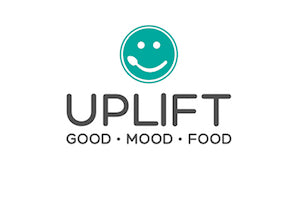The Gut-Microbiome-Brain Axis
Hey Uplifters,
Today we are super excited to share with you guys an important journal article from the sciencedirect about the gut-microbiome-brain axis!
There have been clinical studies to show the bidirectional interactions within the brain and gut microbiome. The gut microbes communicate to the central nervous system through 3 channels involving the central nervous system.
A large series of clinical observations have also been made to illustrate any alterations made to the brain-gut-microbiome axis which can lead to obesity, irritable bowel syndrome and other neurological disorders including anxiety and depression. Therefore it is important to make sure you understand the important interactions between the brain-gut-microbiome axis.

The gut microbiota connects with multiple cells including neuronal, endocrine and immune cells, and changes in the gut function can affect gut microbial behaviour. The gut microbiota communicates to the brain via gut-derived molecules. Any alterations in the response to stress can alter stability and behaviour of the system.

Several animal experiments have been used to study the influence of the gut microbiota on the gut-microbiome-brain axis. The experimental approaches signalled the lack of a normal gut microbiota in early life and can have a significant effect on adults responsiveness to stress. These changes can to a certain extent be reversed by a early approach to the gut microbiota.
The absence of the gut microbiota can also have an affect on neurochemical changes including serotonin and monoamine, which effects the release of important neurotransmitters including dopamine and noradrenaline.
Lastly, the absence of the gut microbiota not only can cause issues with adult stress responsiveness but also has implications on anxiety like and depression like behaviours.

An experiment approach to the complete or incomplete depletion of the gut microbiota is the introduction of microorganisms including probiotics and prebiotics. A probiotic intervention study was conducted on 44 adults with irritable bowel syndrome and diarrhoea, and depression like symptoms reduced amongst these adults. Significant changes in the connectivity between the brain regions during a rather emotional task showed an affect on the gut microbial composition.
 Patients with irritable bowel syndrome tend to also exhibit anxiety and depression like behaviours. Preclinical studies have proven the relevance of the microbiota's ability to regulate emotional behaviours as well as have a influence on the severity of mental illnesses. Prebiotic and probiotic interventions seem to have a healthy control over anxiety as well as mood.
Patients with irritable bowel syndrome tend to also exhibit anxiety and depression like behaviours. Preclinical studies have proven the relevance of the microbiota's ability to regulate emotional behaviours as well as have a influence on the severity of mental illnesses. Prebiotic and probiotic interventions seem to have a healthy control over anxiety as well as mood.
Due to all the progress that has undergone in the last 10 years between the gut microbiome and central nervous system, the use of prebiotics and probiotics can definitely have a positive impact on your health, especially on long-term growth.
You guys can try our Daily Uplifter prebiotic powder from our website here, or try our recently launched Gut Happy Cookies here, which are both packed with prebiotics, probiotics and loads of other gut health benefits!
In good gut health,
Team Uplifters!
